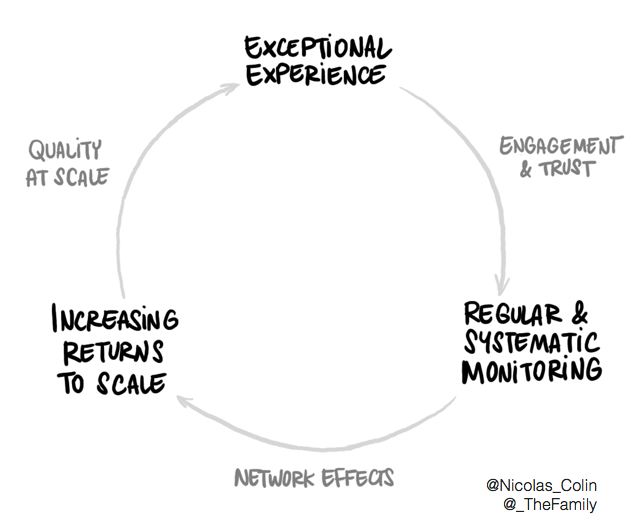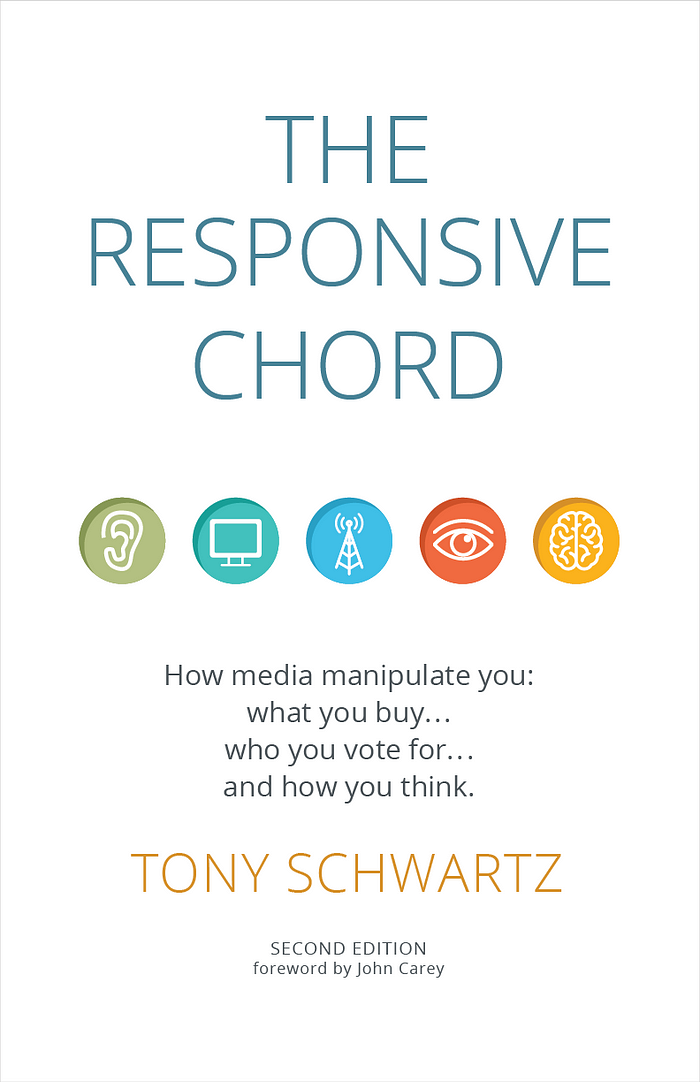Facebook and the Responsive Chord
The Family Notes
By (Co-Founder & Director) |

Tony Schwartz (1923–2008) was an advertising legend. His famous “Daisy Ad”, in which we see a young girl counting as she plucks petals from a daisy just before a nuclear bomb explodes, played a crucial role in the reelection of President Lyndon B. Johnson in 1964.
In The Responsive Chord (1973, reissued in 2017), Schwartz provides the keys to a successful ad. For him, the goal of an ad is not to simply deliver a message to an audience. Instead, it’s to force the context to evolve, activating the “responsive chord” within individuals and having them arrive at the idea for themselves. The goal isn’t to teach people something, it’s to send them deep within themselves and truly resonate with them. As Seth Godin has written,
People don’t believe what you tell them…They always believe what they tell themselves.
Facebook is experiencing the bitter power of the responsive chord that Tony Schwartz theorized. Many people have known for a long time that the social networking platform was providing app developers with access to particular bits of users’ personal data. But they never seemed to mind so much, seeing as Facebook was providing them with an exceptional user experience.
Many of Facebook’s detractors, whether techno-skeptics or unhappy competitors, cried out about the situation, always denouncing the large-scale, supposedly “predatory” behavior regarding personal data. But as they couldn’t strike the responsive chord with most people, their cries fell quite literally on deaf ears. Again, people never believe what you tell them!
Unfortunately for Facebook, the context changed radically due to an unexpected event. Ever since the election of Donald Trump, there are many who are turning a critical eye to the practices of tech companies. In the US, the Democrats (who up until now have been very close to Silicon Valley) blame them for providing Trump with the tools needed for victory (as for the Republicans, they have never liked them anyway). In the rest of the world, US tech companies are no longer seen as a respectable part of Obama’s America but as a monstrous outgrowth of a country currently descending into violence and chaos.
Thus it isn’t Facebook’s practices nor the arguments long put forward by its detractors that changed. Instead, the context changed. Donald Trump’s win increased people’s sensitivity regarding the collection and use of their personal data. Their responsive chord is no longer struck at the same frequency as before. Many are now struck at the same frequency which is coming from Facebook’s critics.
This new context is an opportunity to step back and reflect. Europe is congratulating itself for the upcoming installation of its famous GDPR regulations regarding personal data, which will place tech companies within a new framework. The European Court of Justice could soon harden the conditions under which data from European citizens can move toward US soil. And Mark Zuckerberg himself suggested that the social network could align its global practices with the new European regulations, showing his determination to navigate this crisis and come out ahead despite the current punishment that he’s taking.
Still, the tech giant of Menlo Park is going through a dangerous moment right now. Some users hadn’t even waited for the Cambridge Analytica revelations or the election of Trump to curb their Facebook usage, turning to other applications such as Snapchat or Instagram (the latter, of course, owned by Facebook).
Most importantly though, the changed frequency of the user’s responsive chord risks breaking the virtuous circle that has permitted Facebook’s extraordinary success to this point. Since the company inspired trust, it could collect more and more personal data from users, which let them further refine the user experience and thus inspire even more trust.

Today, things are moving in the opposite direction. Mistrust complicates data collection, which degrades the user experience and risks inspiring even more mistrust. As with MySpace and Yahoo before, Facebook could become a fresh reminder that, in a digital economy that is more and more unstable, those in the dominant positions never stay the same for long.
And what advice would Tony Schwartz have had for Mark Zuckerberg? The problem that Facebook’s management faces is well known: the more they defend themselves, the stronger the responsive chord is struck, only creating more ill will. That’s why the best counterattack in terms of messaging is often to open a new front, perhaps this time with regards to advertisers, Russia, or… the American government? We’ll see, at that moment, whether the responsive chord can sing at its old frequency again.
This op-ed was originally published in French in L’Obs, a magazine to which I am a regular contributor.


